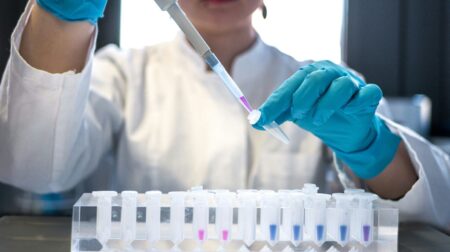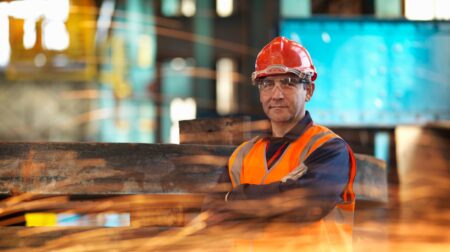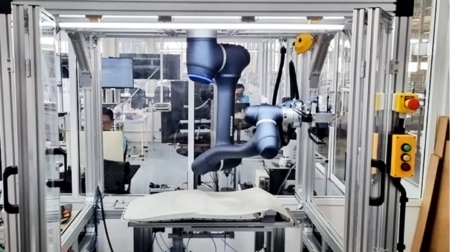German automotive manufacturer Audi has unveiled its latest advancements in the production of the Audi A5, focusing on efficiency and sustainability at its Neckarsulm plant.
According to the company, the integration of advanced robotic systems and automation technologies is transforming its production processes, aligning with Audi’s broader environmental goals.
Specifically, Audi’s ‘Mission’ programme aims to reduce the carmaker’s ecological footprint significantly, targeting key areas including decarbonisation, resource efficiency, and the reduction of water consumption and environmental impact.
READ MORE: BMW scales up use of 3D-printed robot grippers for car assembly
At the the Neckarsulm plant, robots designed to optimize production while minimizing waste and energy consumption are tasked with precision assembly operations, material handling, and quality control.
One of the key innovations is the deployment of a flexible, automated assembly line, which adapts to different production needs and model variants without the need for extensive reconfiguration, reducing downtime and improving overall production efficiency.
Audi has also implemented automated guided vehicles throughout the facility, streamlining the logistics of component delivery to various assembly stations, reducing the need for manual intervention and significantly lowering the plant’s energy consumption.
READ MORE: Renault opens fully-automated logistics facility featuring almost 200 robots
In addition to enhancing efficiency, the plant’s automated processes are designed to reduce material waste by optimising the use of resources, such as ensuring precise cuts in sheet metal and minimising off-cuts.
Moreover, the automation of previously manual processes reduces the plant’s energy footprint by minimising errors and the need for rework.
The Neckarsulm plant has also introduced closed-loop systems for water and materials, ensuring that as much as possible is reused and recycled within the facility. For instance, the water used in production processes is treated and recirculated, greatly reducing the plant’s overall water consumption.
According to Audi, the integration of robotics and automation at Neckarsulm also positions the German automotive OEM for future advancements in automotive manufacturing, including the production of electric vehicles.
Innovations and achievements in automotive manufacturing will be highlighted and celebrated at the second annual Robotics & Automation Awards on 06 Novembr 2024 at De Vere Grand Connaught Rooms in London. Visit www.roboticsandautomationawards.co.uk to learn more about this unmissable industry event – and to book your table today!







